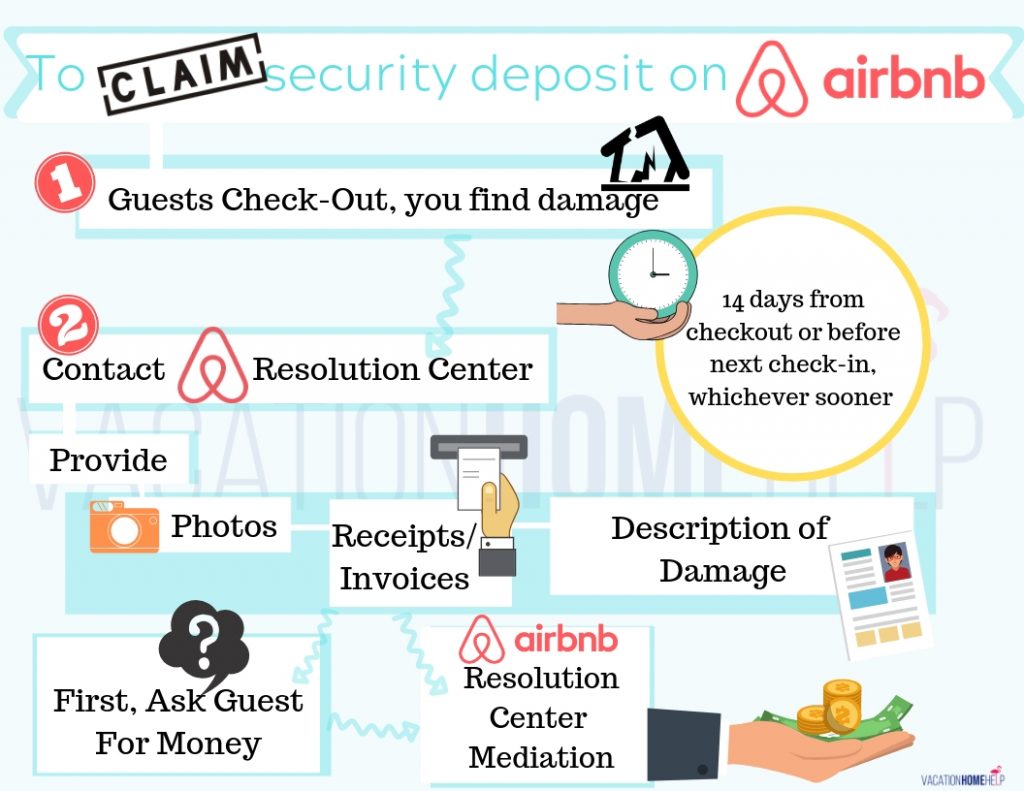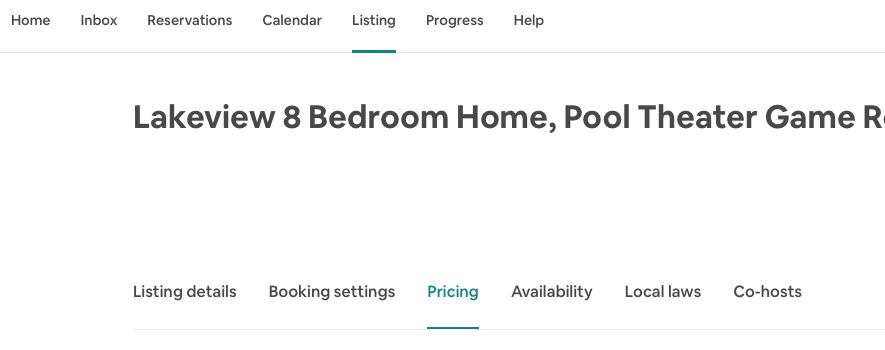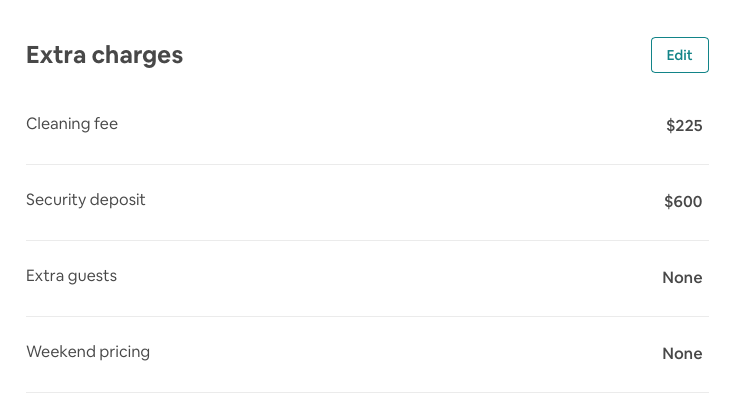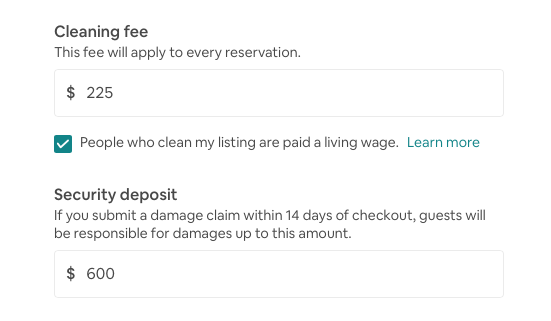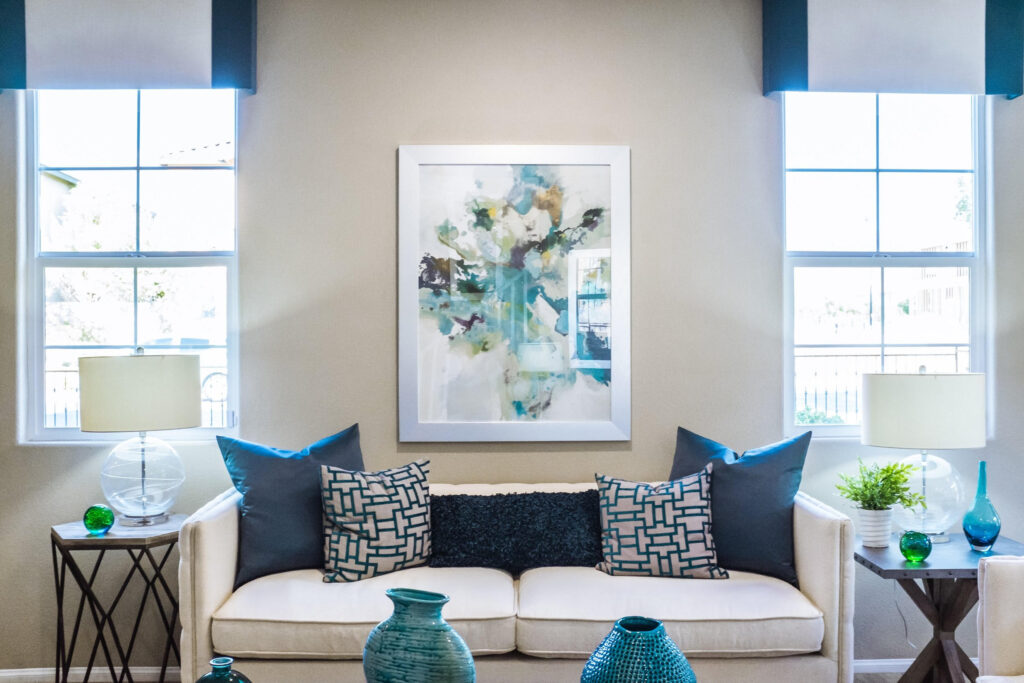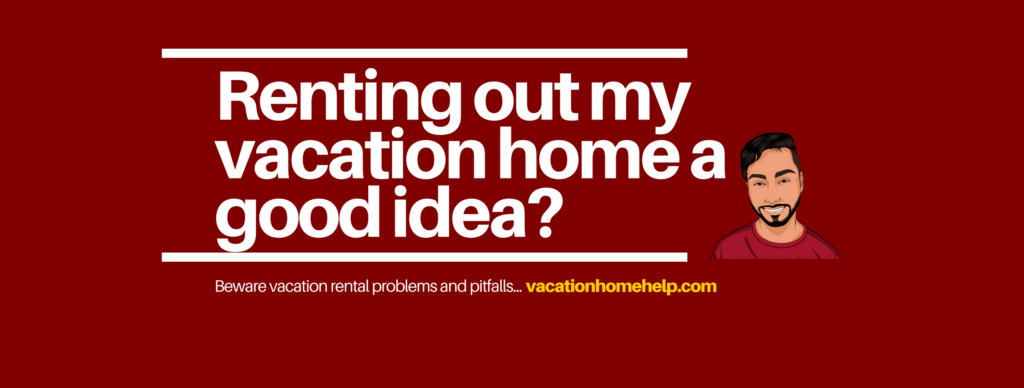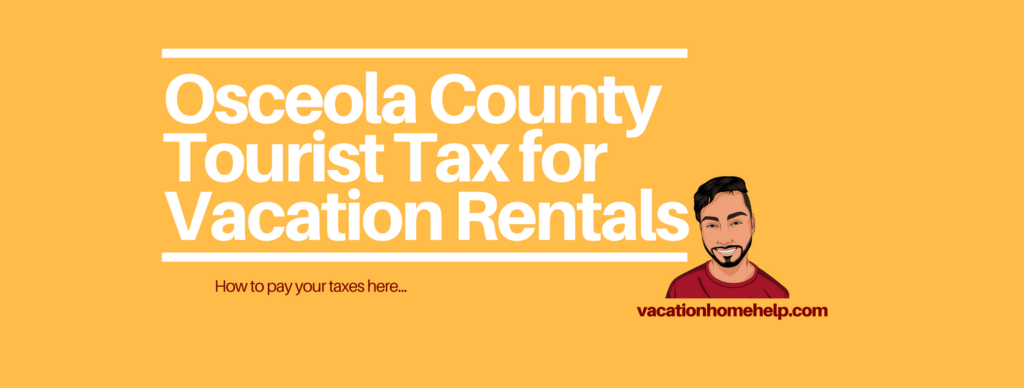Protecting your Airbnb from damage is a priority, but is a security deposit the best way? By reading this brief guide, you will learn everything you need to know about setting up a security deposit for your Airbnb rental.
What is a security deposit on Airbnb?
First, a security deposit is defined as a set amount of money held from the guest until check-out to cover damages to the property during the course of stay. To illustrate, a security deposit is necessary because the Airbnb Host Guarantee only protects against "rare instances of damage" and not "reasonable wear and tear" Because of this, Airbnb allows hosts to set up a security deposit to cover damages not covered under Airbnb's Host Guarantee.
Security Deposit vs. Host Guarantee example:
Marcos stays at your Airbnb for 3 nights and his girlfriend wipes her makeup on several of your white towels. Their son had a bloody nose and broke a glass bowl and glass while having too much fun at dinner. The walls have scuff marks throughout from luggage knocking against them. In addition, leaving doors open causes AC units to freeze. In summary, Marcos and his family did not follow all of your house rules.
Damages caused by this include, but are not limited to: Extra cleaning, purchasing of new towels and glasses, touch up paint, and calling an HVAC tech.
The Host Guarantee may or may not cover the HVAC expense, but you will definitely have a hard time claiming the other items. This is where a security deposit is your best friend. If a security deposit is in place, then you can charge the cost of the extra cleaning and items to their security deposit. But first, please be sure to communicate the issues with your guest in a polite manner. Thank them for staying, but explain cost incurred.
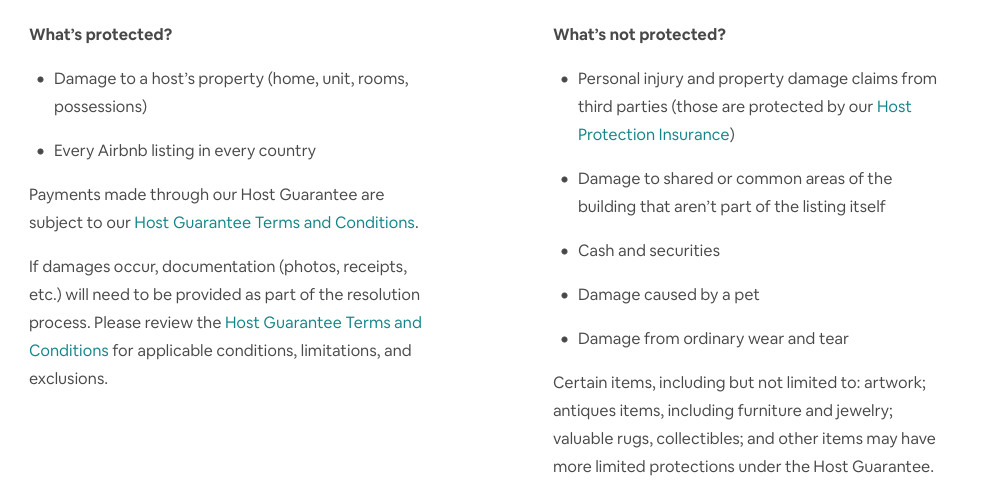
Are photos necessary for a claim?
While not necessary, they are compelling evidence of damage. Ask your cleaning crew to take pictures if you are not local. Importantly, make sure the pictures are clear and show the actual damage, not blurry and pixelated.
How does the security deposit work on Airbnb?
The process is simple, but lengthy. When a guest books with a host, they are not instantly charged for the amount of security deposit you specified. Instead, you as a host must make a claim within 14 days from guest check-out date in the event damages to the property took place. At that time, the guests will be charged.
Please note, the guest is not charged right after you click the button and file. First, you must contact the Airbnb Resolution Center and provide evidence of damages. Remember, include photos, receipts, and invoices for your case. Next, you have the option to work out the cost of damages directly with the guest. Airbnb will nudge you to request money from the guest first. 9 times out of 10, the guest will not pay you. Next step, ask Airbnb to mediate the claims process.
What amount should I charge?
Fortunately, Airbnb allows you to set the amount of your security deposit at your discretion. A little over 57% of hosts are currently charging a security deposit. Airbnb does not specify the right amount to charge, this is an amount you must determine based on your unique needs. From my research through host groups, forums, and my clients there is no set amount to charge. Your deposit, in no case, should exceed 15-20% of the booking total. Doing so would make your property unattractive and not competitive. On average, hosts are charging $100-500 depending on the size of the property, type of furnishings, televisions, etc.
Airbnb Policy and Process
Guests don't have to immediately pay the security deposit; guests only pay when host uses the Airbnb Resolution Center to file a claim. Request can be made within 14 days of guest checks out or when a new guest checks-in, whichever happens first. If the host does not request the security deposit within this time frame owner forfeits opportunity to claim against security deposit. More info on Airbnb's security deposit policy.
Stop making this mistake that is costing you thousands in lost bookings now...
Setting your security deposit too high will increase the amount to potential guest. While Airbnb does not charge guests upfront, Airbnb has not educated guests correctly on security deposits. Unless the guest dives deep into Airbnb's policy, they will not know that the security deposit isn't charged upfront.
How to set your Airbnb security deposit on your listing
- Login to Airbnb owner login page
- Go to Your Listings and select the listing
- Click "Manage Listing"
- Press "Pricing Settings" at the top of page
- Then, click "Edit" next to "Extra Charges"
- Enter an amount for your security deposit under "Security Deposit"
- Click "Save"
-
Click Listing, then pricing. -
Click edit to change amount of security deposit... -
Enter the amount of your security deposit.
Please note, new security deposit will only be applied to new reservations and not already confirmed bookings.
Top Three Problems Associated With Security Deposits on Airbnb
While great protection for the host, security deposits are never a good thing for the guest. From the guest perspective, it is an additional charge. There is also often a source of distrust coming from requesting a security deposit. Here are the top three problems associated with security deposits on Airbnb.
1.) Guest anxiety over what they perceive as surprise charges
Hosts worry about the addition cost of a security deposit on the attractiveness of their listings. Correct to worry, but incorrect to assume. The guest is not going to be charged the cost of the security deposit unless a claim successfully makes its way through the Resolution Center. Still, a combination of perception and misinformation can reduce demand for a property based on a security deposit. Airbnb clearly states that guest will not be charged upfront.
2.) Lack of education for guests on Airbnb platform
Hosts often find themselves explaining the security deposit to guests. Often, one of the first questions is about the security deposit. Explaining to guests that they will not be charged upfront becomes tiresome, but it is important to communicate clearly to win more bookings and not scare off potential guests.
3.) Trust issues come hand in hand
Being a host implies trusting someone to your space. If you are charging them to protect yourself, you may think you are being prudent. To the guest, you are saying you don't trust them. Some guests will not stay with hosts that charge a security deposit. Does this mean they are a bad, damage-causing guest? Well, no. Not always. The guest may believe you are charging a security deposit as a way to be dishonest and secure additional revenue.
What if Airbnb does not recover my damages, now what?
Unfortunately, if you cannot settle with the claims process through Airbnb, court is a common avenue. Hosts may have to take guests to court if there are significant damages that were not recoverable through insurance, Host Guarantee, and deposit.

